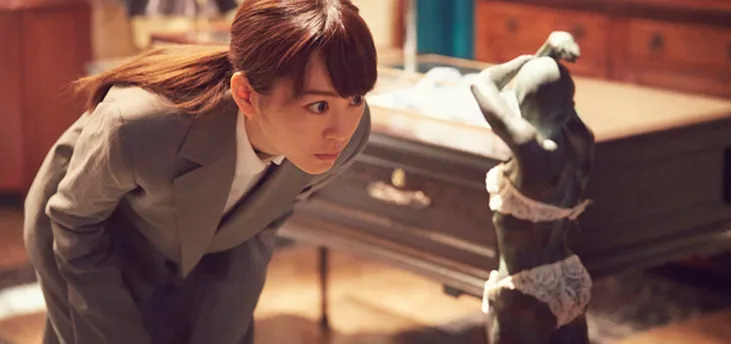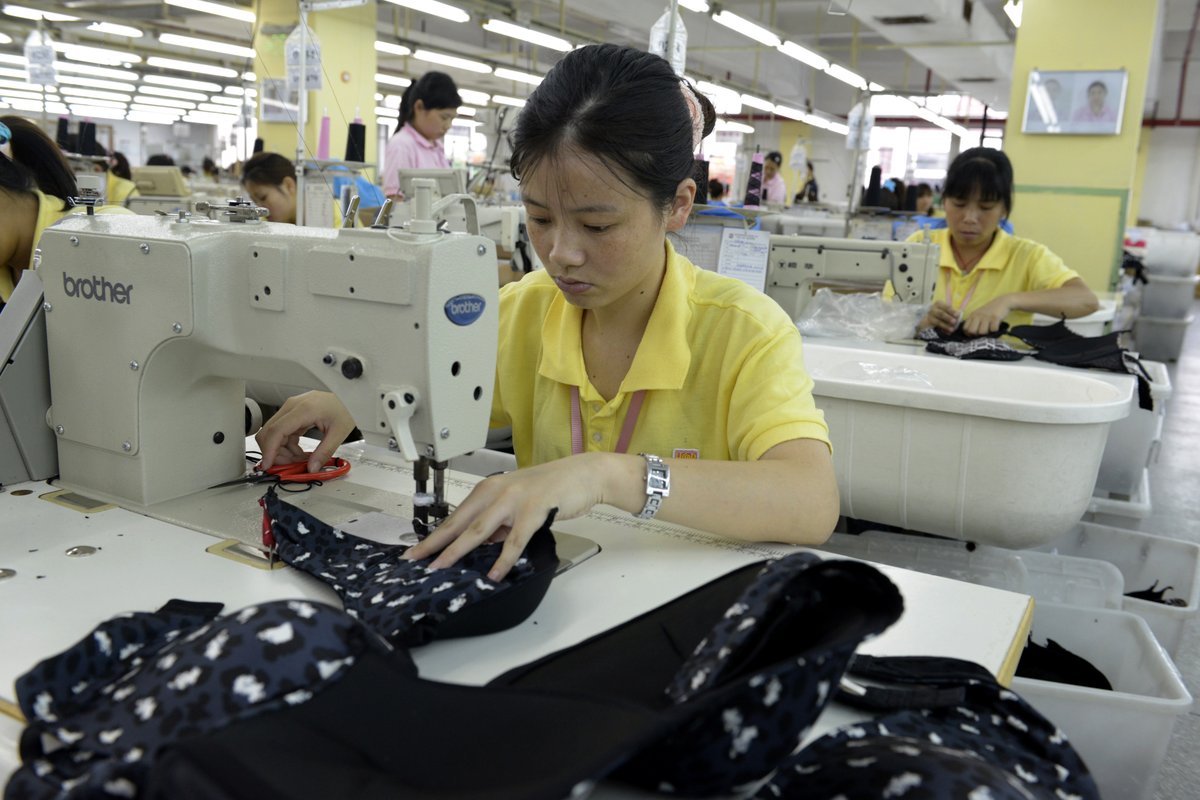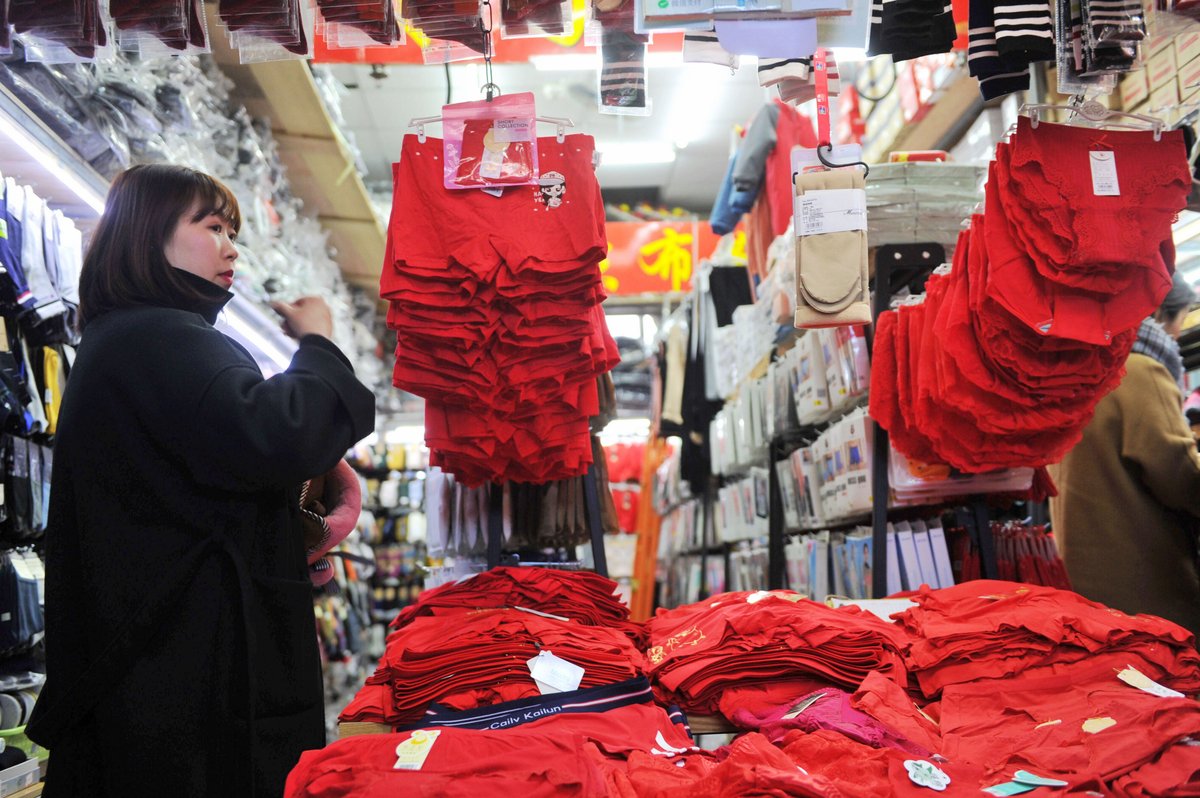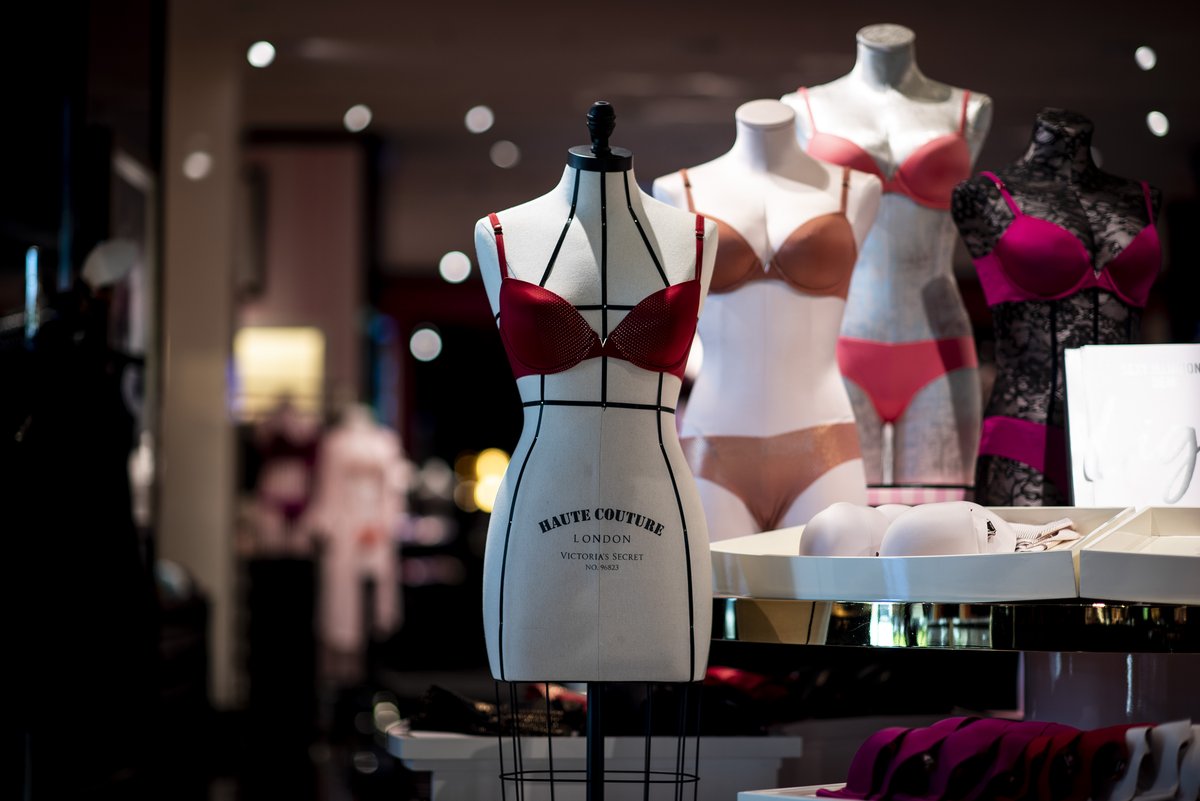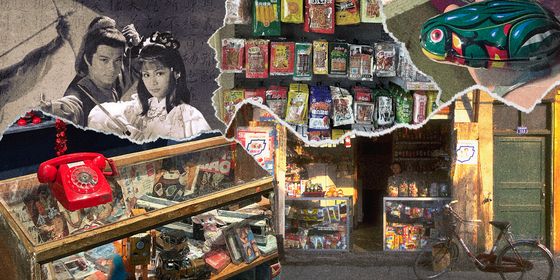Memoirs of a Gen Z factory worker in a coastal town
1/7
After passing my college entrance exams, I made up my mind to leave my home province and study journalism in Sichuan. I shared my plans with my parents, but my mom was indifferent to my enthusiasm. The next day at noon, she informed me that she’d been to Guan Fuzi Temple in the early morning, where she’d asked for guidance by “throwing moon blocks,” or babei (跋杯), on my behalf.
Babei is a common way in Taiwan and southern Fujian to communicate with deities and ancestors. Here, the “moon blocks” are a pair of crescent-shaped utensils with two sides, one bulging and one flat, standing for yin (negative) and yang (positive). Before throwing moon blocks, temple worshipers must first burn incense. Then, they introduce their yes-no question to the deity and throw the moon blocks. The way the blocks land will reveal your answer.
My mother had an answer from Guan Fuzi, the Lord of War. “I told him about your plans to study in Sichuan, and thrice I got two yang. Fuzi disapproved of your intentions. When I asked whether you should just stay in Fujian, he was immediately approving. It’s the will of the gods, I’m not trying to stop you.”
“Mom, come on.” I snapped. “Don’t blame the gods for your own ideas.”
My mother choked up immediately. “What’s so good about leaving home? Studying is studying wherever you are, and if you chose a closer school I could still visit you every now and then.”
She was now a babbling, tearful mess. “You think it’s nice, having me worried sick every day while you’re away? I already cried nonstop for over a month when you left for high school!” (I went to high school an hour’s drive from home, and I was a boarding student.)
Cue in a week of arguing, crumpled tissues, and swollen eyes. A revolving door of relatives came trying to persuade me. “It’s a shame you’re bringing such sorrow to your mother. She’s already struggled so much in her life. Besides, Guan Fuzi already made his will clear.”
Only my younger brother supported me. “Mom is always like this. Go wherever you want and let her throw her tantrum.” His words incensed our mother.
In the end, I had to compromise. I settled for a university in Zhangzhou, a city in Fujian, for my undergraduate in journalism. However, I did negotiate a concession—I would go to university in our province, but once I graduated, I would get to decide my own path.
My mother was all smiles as she immediately agreed. Guess what—she never came to visit me in college. Not even once.
—
In 2018, during my final year in university, I sent my CV to companies in Beijing, Shanghai, and Guangzhou, confident that I’d find an internship. Again, my mother wielded her tears and visits to the temple against me. For two days, I’d been pleading with her in vain to remember her part of the deal.
My mother hadn’t changed in the slightest. She wailed, “You’ll send me to my early grave if you leave. Whatever will I do?” Her relationship with my father was strained, and soon my younger brother would graduate and leave himself to work someplace else. I was her eldest child, her only solace, and without me, my mother said, she’d be hopeless, lonely. She might as well die.
After a while, she wiped away her tears to try a different line of attack. “I went to pay my respects to Guan Fuzi today, and his answer was just as clear this time, too. It’s his will that you stay home with your mother.”
I was speechless. Our parents’ marriage had always been rocky. They’d always quarreled, and though at first us kids were scared, soon enough we grew numb to it. My father’s family had been affluent; at some point in life he’d had some assets, a boat, and real estate to his name. My mother was the sixth girl born to her family that was hell-bent on having a male heir, who finally came after her. Only two of the elder sisters and the baby brother ever attended school. My mother didn’t even learn to read. In her teenage years, she joined the ranks of the hometown underwear factory, where she became a lathe operator. She was 23 when she met my father, 10 years her senior, on a blind date. They married just a few months later.
However, the next few years were still rather unkind to my mother. My father went bankrupt and had to sell his boat at a loss. He never recovered from this setback, so my mother—always more assertive than him—was forced to return to the factory. For much of my life, my father just loafed around, whether at home or in the streets. My mother was controlling and manipulative; my father was largely absent, like a ghost. However, my mother’s daily toil at the factory did keep a roof over our heads and rice on the table. She even managed to save quite a lot of money and keep the family together, however dysfunctional our bonds were. We were comfortably huddled in the ruins of our parents’ marriage.
Now, she pleaded again with me, bawling and even grabbing me. “I live for you kids, you’re all I have. I’ve worked my guts out for so long. Now that I’m old, all I ask is to see you leading a good, peaceful life so that I may finally rest.”
I felt at a loss. What to do?
2/7
Fishing and underwear manufacturing—that’s all you’ll find by means of industry along the coast of Fujian. The latter is specialized in foreign export and has developed steadily in the decades following China’s market reform. In fact, our region is known as China’s “Underwear Hub.” Driving into town, you’re sure to spot the eye-catching billboards lining both sides of the street. They’re populated by white models looking their best in their underwear. The men are handsome and muscular; the women look beautiful and graceful in their brightly colored lingerie. It’s quite the sight amid the green landscape.
Looking for a job in our small town meant joining the factory ranks, either as a blue-collar worker involved with the production or as an office worker dealing with clients’ orders—these are known as “merchandisers.” The latter was the path my mother had long mapped out for me, and naturally I was opposed to it. I’d seen her stuck in the factory’s piles of underwear year in, year out. Whenever she scolded or beat me, the smell of fabric clung to her body.
“Several of your older female cousins are making a killing as factory merchandisers. They make over 100,000—no, 200,000 yuan a year. What else are you qualified to do? Teaching? Accounting? Just what did you learn at that college of yours? Nothing, that’s what.” My mother saw my resentful face and changed tack. “Merchandising is an office job, you see. I would never act against your best interests.”
I was still confident that I could find a job in my actual field of study, if only I looked outside of the province. But, my mother just would not have any of my counterarguments. She took it on herself to find me a job and dragged me to her factory the very next day, showing me around. “This factory has been in operation for over three decades, and it’s only two years ago that all operations were transferred to this new site. Here’s where your mother started back in the day. The boss is a good man, and he’s wealthy, too, one of the richest in town. Just look how magnificent the factory is. Hundreds of people are busy at work here.” With these words, my mother took me upstairs for the interview. The manager barely asked me a few questions before instructing me to show up for work in a few days.
Back downstairs, my mother kept on gabbing about how the former boss retired and passed the reins of the factory to his son. She also shared with me many anecdotes from her time at the factory, smiling as she spoke. With this, my own discomfort subsided a little.
That’s how I started working as a foreign trade merchandising intern, though in the local lingo I’d just “joined the factory ranks.” It really didn’t matter whether I was sitting in an office or on the assembly line.
—
Four other people joined the factory during my first week, making for a total of five new interns. They were Xiaojie, Pingping, Chen Bin, and Liang Ping, and they were all about my age. Our boss had us introduce ourselves briefly before having a senior worker lead us to the factory floor.
It took us only a couple of minutes, seeing as the office building was just opposite the factory site. Our destination for the first week was the packing area. When Xiao Jie asked for clarification on the nature of our task, our senior colleague decided to show instead of tell. She sat down swiftly, opened a cardboard box and tore off a piece of tape on the back cover. Then, she turned the box to the right before folding and placing inside a pre-packaged set of underwear according to the instructions. “You just have to follow whatever’s written on the paper to pack each set. Be sure to meet the quota for each sizing and avoid mistakes. Work in teams so that each of you will be in charge of a different size, and then someone else will be in charge of sealing the boxes.”
Only Xiao Jie raised his hand again for questions while the rest of us looked at each other in silence. “Why do we have to do this? Surely it’s someone else’s job?”
The senior worker glanced at him before replying: “Merchandisers are expected to gain an understanding of every step involved in production rather than sitting around the office. We’re short of hands at the moment and you don’t have much to do right now, so you might as well help wherever you’re needed.”
With these words, she left us there with no other choice than getting down to work. In the absence of chairs, we had to sit on pieces of cardboard. Xiaojie packed his box and stated, visibly angry, “We’re not handymen, we’re here to learn commerce.”
Only then did I realize that Xiaojie was different from the rest of us.
Liang Ping intervened to change the subject, pointing to the women’s underwear in the box: “So what are those, anyway?”
Xiao Jie didn’t even lift his eyes: “Those would be thongs. Haven’t you ever seen those before?”
Liang Ping blushed as the rest of us exchanged embarrassed glances and smiles. None of us had, in fact, seen anything of the kind.
Packaging looked deceptively simple. We had to bend down repeatedly in order to grab and load the goods. Whenever we ran short of a particular size, we had to search for it in the entire packing area. Within a week, I came to learn that Xiao Jie had prior experience in merchandising. He’d spent three months at his previous factory before he left, frustrated with the lack of growth opportunities. Chen Bin was learning from scratch here, back in town after stepping down from an entirely different job in some large city. Pingping, Liang Ping, and I had just joined the workforce.
3/7
At the end of our first, gloomy week, we were finally called back into the office to formally start learning the ropes of merchandising. My direct supervisor was a young, good-natured saleswoman with a gentle voice and a word of comfort when we greeted each other for the first time. “Stay diligent in your work and you won’t find it difficult.”
Indeed, the work was slow at first. For a while, we were clocking in and out on time, and I even got to enjoy my commute. Our office décor was, for lack of a better word, unique. The senior workers had placed plastic storage totes under the spacious desks, filled with underwear-related items.
Our training addressed all sorts of matters, from the differences between Chinese sizing and that of English-speaking countries to the different types of fabric involved in producing different kinds of underwear. Sizing, styles, and vocabulary varied from one clothing brand to the next. You can hardly find any seamstresses who understand English in small-town factories. Thus, we were tasked with providing accurate Chinese translations of the English-language size charts that clients emailed to us and the right sizes and fabric types to the pattern-makers so that they could make samples.
Women’s underwear usually involves paying attention to the waist circumference, the front and rear width of the inner fork, and the size of the front length. Pattern-makers need to reserve fabrics in advance for accents and additional details such as any lace, flower buds, elastic bands, and hems.
Men’s underwear was easier to make, with fewer accents and patterns. However, we still had to dedicate quite a bit of attention to the elastic waistband, which was different from the remaining fabric. The wrong pattern choice resulting from a labeling mistake would be noticed by the seamstress and then brought to the attention of our superiors, resulting in headaches.
Ordinary underwear will usually require three measures of fabric for the front piece, back piece, and inner fork, with additional fabric needed for more complicated underwear. We would make samples from these fabrics and send them to the client to review. Most clients will only ever need medium-size samples, though some will require full-size samples, involving the same workload of the final, mass-produced version. Requesting this from pattern-makers is no small feat.
Some customers will only place an order once they’ve received and approved the sample, while others will place their order before approving the sample. Prolonging the window for the approval of the samples means shortening the time for mass production. This, in turn, will result in a chain reaction of trouble for both merchandisers and the factory itself.
Once we were familiar with the process, the boss took us five novices on a visit to the workshops in charge of fabrics, dyeing, and elastic bands. Then, he invited several senior workers over to teach us how to identify fabrics and accessories. On average, the most common fabrics on the market are 100-percent cotton and a 95-percent cotton, 5-percent spandex blend. We were also taught to tell apart fabrics by pulling them by hand. There is almost no stretch to pure cotton fabric, while spandex is the opposite. For higher-end bamboo fiber, it’s all about the silky touch. Foreign orders required strict attention to detail when selecting. Poor-quality samples made from the wrong choice of fabric would make us seem unprofessional.
Those were the so-called “good days” where I managed to relax a little and hold my hopes high, even telling myself that I didn’t have it bad at all. Afterwards, my supervisor introduced me to the clients by email and taught me the tricks to communicating with them. Every time we shipped an order, we were to send the client an invoice indicating the shipping time and the contents. “These e-mails are ready-made evidence. If we don’t hear from the client for a long time after we shipped, we whip out previous communication to prove that we’re not at fault,” my supervisor said.
She told me it was always best to call the client when we needed to communicate, so that we could pressure them into giving us timely feedback and clarify any misunderstandings. For any details that clients agreed to over the phone, we would follow up with a confirmation email.
—
Half a month later, we placed the first order of my internship. This was also the moment in which I realized just how naïve I’d been. A merchandiser‘s work had to follow the entire production process. We had to stay on top of sample proofing, sample making, and delivery, as well as the time window where we waited for the customer to approve the materials, and this barely covered the early production stage. We had to conduct business responsibly. From procuring orders to the follow up of the factory’s production and the arrangement of the shipping schedule and containers, I only got to finally breathe a sigh of relief when the shipment was placed on the truck.
The average time for filling most orders is three months, but the factory manager was firm on reserving one month solely for production. Thus, we had only two months left to confirm the details of the order, and our boss had additional requests. “The dyeing and elastic band workshops need one month each to finish the order. They’re just as rushed as you are.”
Our boss got to be hands off on the front line, other than making random rounds on the factory floor to breathe down our necks and make sure we got the client to approve the order within a month. By rough estimate, it took three days for the dyeing workshop to produce a sample, and another seven to 10 days to send it to the clients for approval, so now you were looking at less than half a month left. Difficult clients would easily make you redo the color or any other small detail two or three times, to say nothing of elastic bands, stitching, and other details. The normal feedback round would typically span 15 days. Getting your sample approved by the client on the first round was like “red rain falling from the sky or horses growing horns,” to borrow an old Hokkien saying—in other words, impossible. Just what was I supposed to do? In the end, we could only call up the suppliers, pressing them to speed up like debt collectors.
Just two months after joining the company, all five of us were already working overtime. There’s no such thing as weekends off in small-town factories, let alone anything resembling social security benefits required by law. If you were lucky, maybe you’d get the odd Sunday off. Anyway, we worked overtime alongside our senior colleagues, who were just as busy with the orders at hand.
4/7
In our daily grind as merchandisers, any “unexpected incident” was sure to throw a spanner in the works. People only got more riled up the closer we were to the delivery date.
Pantie samples were by far the likeliest to go wrong. The sample room doubled as our second office. There, the staff was comprised of five testers in charge of different processes, including dealing with the needs of about 20 of us merchandisers. We juggled several orders all at once, and all within three months. Over time, we learned to treat these five samplers like crucial allies. In the sample room, pleasantries were a must. “May I kindly ask whether the samples are ready?” Better make sure you asked with a smile; pissing those folks off would only set you back with your own deadlines.
For my first sample, I was assigned an ample range of sizing for girls’ underwear—eight different sizes. I brought the translated version to Wu Lan, the seamstress in charge of pattern-making. She scoffed at me angrily. “Why on earth did you make a full-size range production out of a sizing sample? Do you know how time-consuming this will be? Don’t you come here and drop this on me! Other merchandisers will only make a couple sizes for this stage, so why should I humor your crazy requests?”
With Wu Lan throwing me under the bus, I had to turn to my boss for advice. He had to ring up the client, and luckily we settled on three sizes only. This was still way too much, but the best we could do.
Wu Lan was a moody woman, and she was also in charge of women’s underwear production. A senior colleague told me I’d be wise to sweet-talk her, and whatever happened I was not to ever lash out.
Once, a client rushed Pingping to produce samples for a set of women’s clothing. She took the fabric and tried to plead with Wu Lan all afternoon with the sweetest manners, until her mouth ran dry from all the talking. Wu Lan just glanced briefly at her before pointing to a corner and replying, “How about you open your eyes and look around for a change? Have you seen all those samples? I am spinning black thread right now, and your order involves white fabric. Just what do you want me to do? Change the line for you? I’m not your servant, you hear me?”
Defeated, Pingping had to go back to her cubicle with her tail between her legs.
—
Whenever merchandisers got together, we’d compare our samples. One centimeter off in terms of sizing, and we’d face a ruthless return from the client. Same went for waistlines that were not wide enough. If the client wanted 16 stitches and you did 14? Rejected. All they had to say was no, and we‘d have to smile, go back to the sample-makers, and beg them to redo it.
I wondered why the factory didn‘t add staff if we were so busy. But it all came down to money, a senior colleague revealed. “Those folks at the sample room are no cheap labor, like we are over here. And they won’t work overtime either—even if production comes to a halt.”
Through the grapevine, I learned that even though Wu Lan and the rest were only making some meager 5,000 to 6,000 yuan now, their wages were bound to rise as they rose in seniority and proficiency. The factory relied on them, and they were presented with a fat bonus from the boss at the year’s end. It was not uncommon for their annual income to top six figures.
Immediately after Pingping gave in, Xiao Jie followed in her footsteps. The client had already turned down his sample three times due to sizing issues. He marched into the sample room holding the piece of fabric, and soon enough he was at loggerheads with Wu Lan.
That night, Xiao Jie resigned. He bade farewell to us over dinner after work; his face was gray. “I’m quitting of my own accord. Man, I can’t stand it here. At my last factory, we could rely on a clear division of labor. It was nowhere near as oppressive as it is here. Most of us here are working our ass off for 3,000 yuan a month!”
He had a point. One month is all it took for me to realize that everything in the factory was a hot mess, but it’s not like the grass was greener in other factories either. As he spoke, I suddenly saw the light. Up until that moment, I’d been the fool who thought that the intense workload was a matter of course.
5/7
Xiao Jie walked away without a care, and when a bird flees from its cage, it’s only a matter of time before its peers notice the door’s always been open. Twelve bustling months later, only Chen Bin and I remained at the factory.
With a revolving door of newcomers, Chen Bin and I were offered the honor of a promotion. We were now senior workers, and though the order volume had rocketed, our wages were only raised by 500 yuan. Our hours far surpassed those of white-collar tech workers in the city. The month following a new order, we would all work overtime. Those with families were let out a bit earlier, but not much—around 10 at night, when the rest of us left at 11 or 12.
I was fearless in my early 20s. I also thought that, since I had nothing to do after clocking out for the day, I might as well work overtime. This attitude was compounded by our boss and his promises of a commission on each order to Chen Bin and me. He told us that we’d get the sum with our end-of-year bonus. Some pie in the sky that was. We’d indulge in secret discussions of how much money we could make and pour ourselves into our work. The dream came to an end when some older colleagues revealed that they were still waiting on their own commissions, years later.
One night, Chen Bin and I were squatting in the corner of the office to gobble our takeout. Curious, I asked him, “Hey, ever thought about switching jobs? Why do we have to work overtime every day?”
“Yeah, and where’d you go? It’s not like there are many opportunities out there. It’ll just be another factory.” Chen Bin stuffed his mouth with some more rice and urged me to get back to work. “Hurry up, Cinderella. Otherwise it’s midnight for you.”
He was right. Juicy job opportunities weren’t exactly a dime a dozen in China’s “Underwear Hub.” This was about as glamorous as it’d ever get, and I was thwarted in my efforts to go try my luck in another town. My mother sat at home with the lights on every night, waiting for me to come back. For all her worries that the lonely roads were dangerous for me at night, she didn’t have any issues with my working overtime. My mother’s life creed considered hardship as the only path to material comforts. She wasn‘t afraid of suffering, so she didn‘t allow me to be afraid, either. She herself was still a first-class worker that any factory would have happily employed.
Blue-collar workers in the local underwear factories were all paid on a piece-by-piece basis. The more they did, and the faster they did it, the more they would earn each month. Hard workers were sure to make money. I got to ask one of the packaging ladies about her wages one night, as I rushed to complete my own tasks. She replied that she usually worked until 10 every night. A string of good products would leave her with 8,000 to 9,000 yuan a month, and at the very least she was still cashing in a minimum of 6,000 to 7,000 yuan. To top it off, she shared the usual misconceptions that the assembly line workers held about us merchandisers. No matter how busy or tired we actually were, to these people, we were just chilling in our offices.
My mother encouraged me to work harder. “It’s how it is for everyone here. Now you’re busier, but it’ll get better.”
Maybe I haven’t worked hard enough; maybe I am not giving it my best just yet. This is what I told myself through my gritted teeth.
I tried to correct my shortcomings. I detached myself from my colleagues, declining every invitation to socialize. My life revolved around mealtimes, work, and sleeping. I worked overtime like a mule until I developed back pain, but my meager comfort came from looking around the office and seeing others hard at work, too.
—
Chen Bin was the first one to ring the alarm on my “efforts” while we enjoyed another of our rushed takeaway meals. “We just can’t keep going like this, you know.”
I looked up at him, feeling none the wiser.
“Just think about it,” Chen Bin continued. “It really doesn’t matter how much you excel as a merchandiser. At the end of the day, that’s all you’ll ever be. Anyone can do this kind of job as long as they’re patient and careful enough. Is this all you ever want to be? There’s no future ahead of you.”
At this point of this conversation, it hadn’t even been a year since we joined the factory ranks. I’d never really given any thought to my long-term prospects, but now Chen Bin was making me break out in a cold sweat.
“Do you know what the boss told Xiao Jie when he resigned?”
“What?”
“Don’t let the door hit you on the way out.”
“With so many fresh graduates, the factory has no shortage of kids eager to sit in an office,“ Chen Bin continued. “But, all of us are at the very bottom of the pyramid. For the factory, blue-collar workers are their one valuable asset.”
The one morsel of self-worth I held onto was shattered into smithereens. Chen Bin seemed indifferent to his own words, though. Apparently he’d already come to terms with our reality.
After a long silence, I managed to murmur, “That’s capitalist arrogance for you, they just won’t ever take people seriously.”
“It’s no use getting angry.” Chen Bin gave me a glance. “Yeah, it’s a thankless job, but we’re the foundations of the factory. You won’t truly get to understand a place like this if you don’t place us right on the hierarchy. They train us to understand what goes into producing underwear, so that we can then go on to do just that. And really, we’re not the same as salespeople. They’ve got better wages and benefits. They’re also less likely to be replaced.”
At this point, Chen Bin held up his mobile phone. I could see several English learning apps dotting the screen. “You’d better use your spare time to learn English so you can become a salesperson. They deal with foreign clients, so English proficiency is a must.“
Once again, I was seeing the light. You can rage as much as you want, and it’ll be for nothing if you’re stuck in a boring, mediocre life day after day. So, I changed the direction of my efforts. Luckily, I was a quick learner, if only out of necessity. My three meals a day granted me a few minutes to chow down on a few technical terms; walking between the factory floor, the office, and the sample room also gave me some time to review English. In the rare event I got a few hours to spare, I could read several pages at once rather than mere words at a time.
Chen Bin and I became comrades. We encouraged each other, and he also shared his knowledge with me every now and then. I got no respite from work, though. I was so busy that I often felt dizzy, and I couldn’t wait to go home and hit the sack. Reading could put me to sleep at any given moment. However, once again I gritted my teeth and persevered for a month. That’s as far as I got before the umpteenth delivery date sent my hard-earned rhythm down the drain.
Our factory was busy with orders, and we often rushed to make every deadline at the last moment. We usually had to ship in the middle of the night if we wanted to ensure smooth operations at the warehouse in the early morning. I could still count myself lucky if the order was shipped out in a prompt manner; at least then I’d get to go back to sleep. More often than not, though, I had to stay over and supervise the packers as they counted and labeled all goods. No mistakes allowed. During peak times, a good night of sleep was an unaffordable luxury. My anxiety flared up with the rapid and frequent ringtones and WeChat reminders, and I dreaded picking up the phone and being told of yet another “emergency.”
It goes without saying that I wasn’t taking good care of myself at this point. I dropped more than two and a half kilograms, but I still couldn’t let go of the burning questions that weighed me down inside. What was the whole point of it all? Sure, you have to perform well at work. But, just where was the good in ravaging myself like this for the factory?
6/7
Just as the frenzy finally subsided, my boss sent me to Shenzhen for a three-day business trip. The client’s company had organized a meeting before the new quarter where we would learn how to use the booking system, mark the boxes, and match colors. Each factory sent a delegation of salespeople and merchandisers to learn.
For once, my mother got no say in my comings and goings, even though she still worried. She made me update her via WeChat on every single step I took—take-off and landing, every place I went to.
It was my first business trip. As I was waiting for the plane to take off, a new notification interrupted my mother’s stream of sad, anxious texts. It was from my photography club in college. Several of my former classmates had gone on to shoot works together, including promotional films and documentaries. Though we’d been a close-knit bunch during our college days, we lost touch once we entered the workforce. Now, the girl who’d been running the club had some good news to share—our club’s documentary had won an award at the college student film competition. Suddenly, the otherwise silent group livened up, with rows upon rows of congratulations. I froze as I stared at the screen. One of the flight attendants had to come over to request I turn off my phone. Once the adrenaline from the whole episode subsided, I felt unsettled.
I carried with me a backpack full of underwear samples that I had to watch over to keep free of wrinkles. Our club documentary was a feature on traditional carving culture, which we shot at the sculptor’s studio, reviewed together, then rewarded ourselves with a meal in the school cafeteria. My heart was sore now. All the happiness, sadness, anger, and contentment in my life was bound up in this pile of underwear—or actually, there was no happiness, nothing more than the brief relaxation I got after finishing my tasks at the factory. I’m sure there are people out there who actually love this kind of job, but that just would never be me.
High in the sky, I turned myself upside down. Once I was back from Shenzhen, I picked up the English book I’d given up on. I told myself I needed to find a way out of the pile of underwear.
—
Business remained as usual. I took the chance to ask Chen Bin about his own progress one evening over dinner.
“Not much to share, truly. I’ve just been too busy recently,” Chen Bin frowned with a sigh. “There’s just never enough time!”
Chen Bin was so busy again for the next month, we got to a point where we only ever discussed work stuff. Slowly but surely, he started checking out during his lunch break, watching short videos on his phone or just catching his breath. He seemed to have forgotten the English apps on his phone.
It was probably at this point that I started to think about resigning. It’s funny, once those ideas start crossing your mind, you become all the more assertive as a worker. We’d all learned to pretend we didn’t see the many nasty things that went on in the workrooms. This was doubly the case for the supervisor over at the packaging department, who had a reputation for his bad temper and excessive yelling. Once, as I found myself rushing to the women’s underwear workshop to clean up some mess, I walked past this guy howling at a young girl. “Did you not listen to what I just told you? I told you to wrap things nicely! Don’t you have hands? Or is it your brain that’s missing? Or maybe it’s both!”
The girl was barely 20 years old. Her eyes were red. I called the guy out, “Hey, whatever you have to say, you don’t have to scream your head off.”
He turned his vicious temper on me. “It’s none of your business, merch girl. If it wasn’t for all of you slowpokes, we wouldn’t be in such a hurry.”
Everyone was always right—everyone other than us order-chasers. I was on fire myself at that moment, since I was on my way to confront one of the supervisors in the women’s underwear workroom who had misread my order. The boss called us both to his office, but the other guy just would not admit his mistake. “She didn‘t write it on the form!”
I waved the list before his eyes: “Why don‘t you read it again?”
He was speechless. That is, until he muttered, “The writing is too small.”
Once the guy left, my boss still scolded me. “You were still at fault here.”
I was stunned: “How exactly? Didn’t I write everything, and provide a sample of the underpants?”
The boss glanced at me and said in all seriousness, “He‘d have been able to read everything clearly if you’d written it big enough.”
The first thought that crossed my mind was just the absurdity of it all. Folks in this company were all masters at passing the buck. Whatever mistake they made, they dissected it in layers until they invariably found a way to blame someone else.
Confrontations are common at the factory, where the pace is always fast, but they rarely last overnight. When I went downstairs to head back to the office, the shouting supervisor from the packaging workshop saw me and put on this sour face, but we were shaking hands to bury the hatchet by afternoon.
7/7
I had yet to make up my mind to resign. First things first, I had yet to secure another job, and then of course my mother was against it. Though I had gone through my grievances at work with her, she just told me, “You just think the job’s much too hard. But, that’s how it’s going to be in every factory.”
“It’s not just about that. Why do I have to hang on to a job that puts so much pressure on me?”
“Well then, have you found your next job? If you quit without having anything else lined up, are you planning to laze around at home? Or are you thinking again about leaving? Don’t even think about it. What kind of pressure could you have at your age? I’ve lived for so many years, do your problems compare with mine? Stop entertaining all that nonsense in your head.”
“Don’t you ever spare a thought for how I feel?” I asked her.
She retorted, “Well, you should try to think more about your mother.”
The conversation ended on bad terms. I still clocked in and out of work daily, but now the idea of resigning was fermenting in my heart. Giving up once or twice is one thing, but I couldn‘t let my mother always bring my resolutions down. I was fettered by her oppressive way of thinking. If she wasn’t happy, her children couldn’t be happy, either.
—
In the winter of 2020, the factory was full of orders as we approached the end of the year, and we were shipping underwear fabrics to other factories to finish, though this was prohibited in our contract with foreign clients.
This was one of those orders pending shipment. I was secretly glad to see that the packaging and box labeling were relatively simple. I followed every step, sent the goods to the car, and called it a success.
In the early hours of the morning, I called the finishing factory to check up on their progress, and their manager swore that everything was going well. I could get off work and go home in peace, and they would load the goods and send them straight off. With a sigh of relief, I wrapped myself up in my down jacket and rode my e-bike home. I slept until 3 o’clock, when the phone’s harsh ringing woke me up. I picked up the phone and heard the other factory‘s manager babbling, “Hey, go to the office and reprint the box label stickers for me, okay? The workers lost some and I can’t find them anymore.”
Whatever energy I had, I couldn’t use it up being angry. I had to get up, rush back to the office in the middle of the night, and wake up the security guards to open the door for me. I left them cursing and went upstairs to print out the stickers. Then I had to rush off with my e-bike as soon as it was finished.
My headlight lit the way forward down the dark road, while the cold wind howled. I was afraid that I’d miss the loading time, so I drove faster and faster. I was so sleepy that even with the freezing wind biting my face, I couldn’t help but yawn. The next thing I heard was a bang. When I regained consciousness, I found myself on the ground. The e-bike had fallen some two or three meters away.
As it turned out, I’d been ejected from the bike after hitting a flowerbed. I patted down my clothes and got up, with only a little tingling pain in my body. I was terrified, but fortunately I had only hurt myself. Nobody else was involved in the accident. I didn’t have time to calm down, though. I picked up the box labels scattered on the ground, hurriedly picked up the e-bike, and checked the flowerbed.
The e-bike was fine, and so were the flowerbed and my cargo. I’d torn my pants in the fall, but I couldn‘t care less. I managed to deliver the labels before 6 o’clock. The truck driver was fast asleep. I had to knock on his window to wake him up. “Oh, is it finally time to load?”
The sky was getting brighter by the time I finally went home. I started getting furious as I opened the door, thinking about the crash. Luckily, I fell in a safe position; luckily my skin was tough; luckily there hadn’t been anyone walking on the road in the middle of the night...I tried to think of each and every silver lining to try and cover up the resentment I felt toward myself for the real concern I had at the moment of the accident—would the labels be okay? I almost laughed as I swore that this time, no matter what my mother said, I would quit this job.
The living room lights were on. I was about to sit on the sofa and wash the wound on my knee when my mother suddenly appeared and asked me what happened.
Tears started sliding down my face when I finally told her. I didn’t cry often, so this startled my mother. She fell silent for a long time before saying, “If you can’t do it, just resign.”
Later, she said that she’d woken up as soon as I went out that night, just sitting in the living room. When I pushed the door open and walked in, seeing my face flushed from the cold and the dried blood on my knee, she thought to herself: It’s just a job. If she doesn’t want to keep at it, then so be it.
I wasted no time and quit my job at the factory, turning down the salary increase my boss offered me to stay. “It’s not about the money,” I said. He scoffed, “What else are you working for, if it’s not money?”
At the time, I held back my reply. Now, I think I should have answered back, “Just how much is an employee worth in your eyes?”
Up until this moment, my mother had always been talking about how “iron can be tempered into steel,” that I should “suffer hardship until I become a master.” I never paid her any attention. I am not made of iron, nor do I want to become steel. Now, I am still confronting my mother, fighting for the freedom I ought to have.
Written by Lai Wen (来温)





